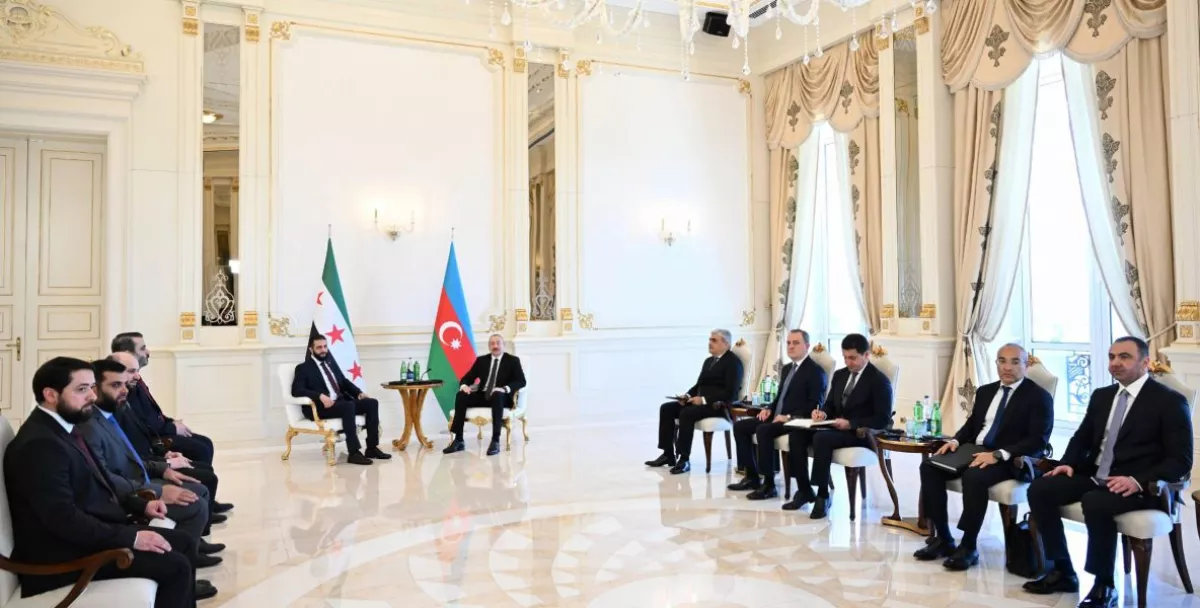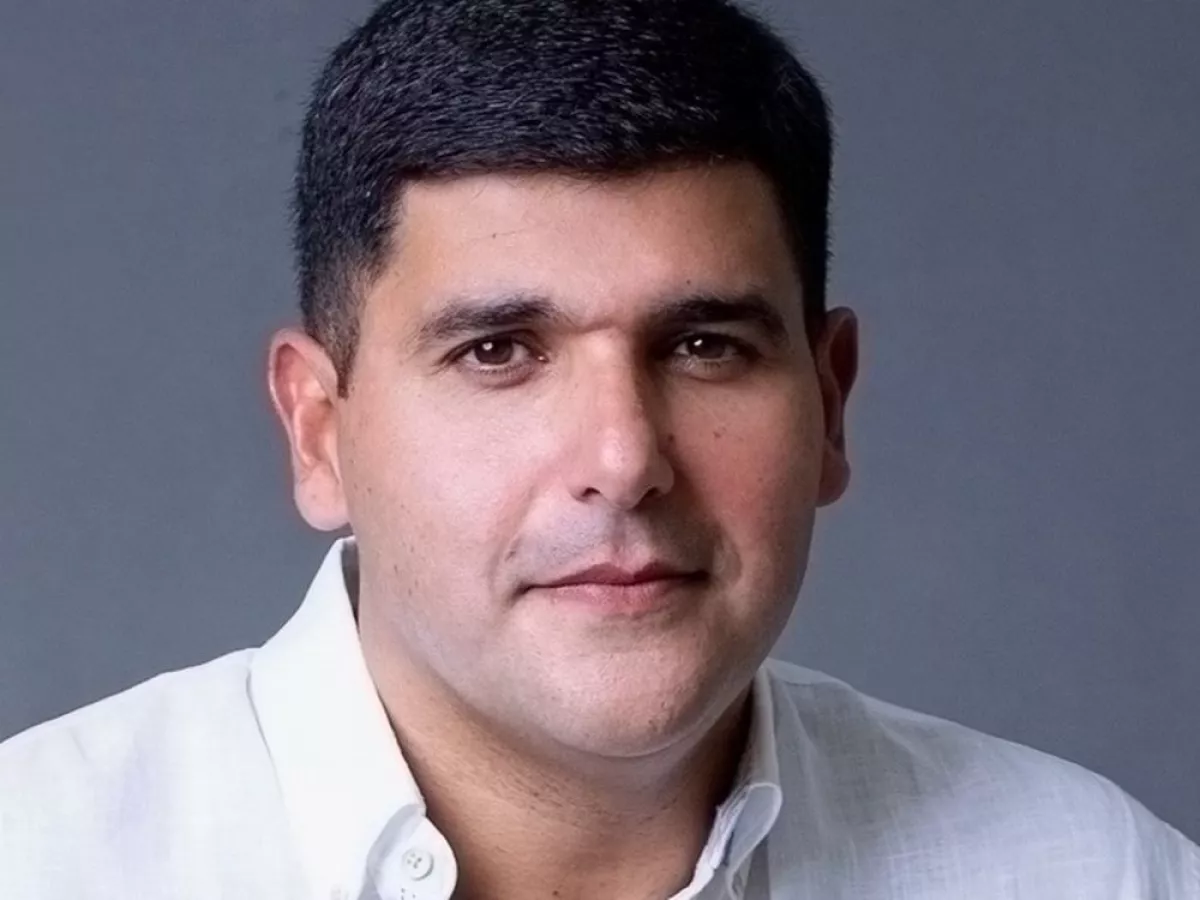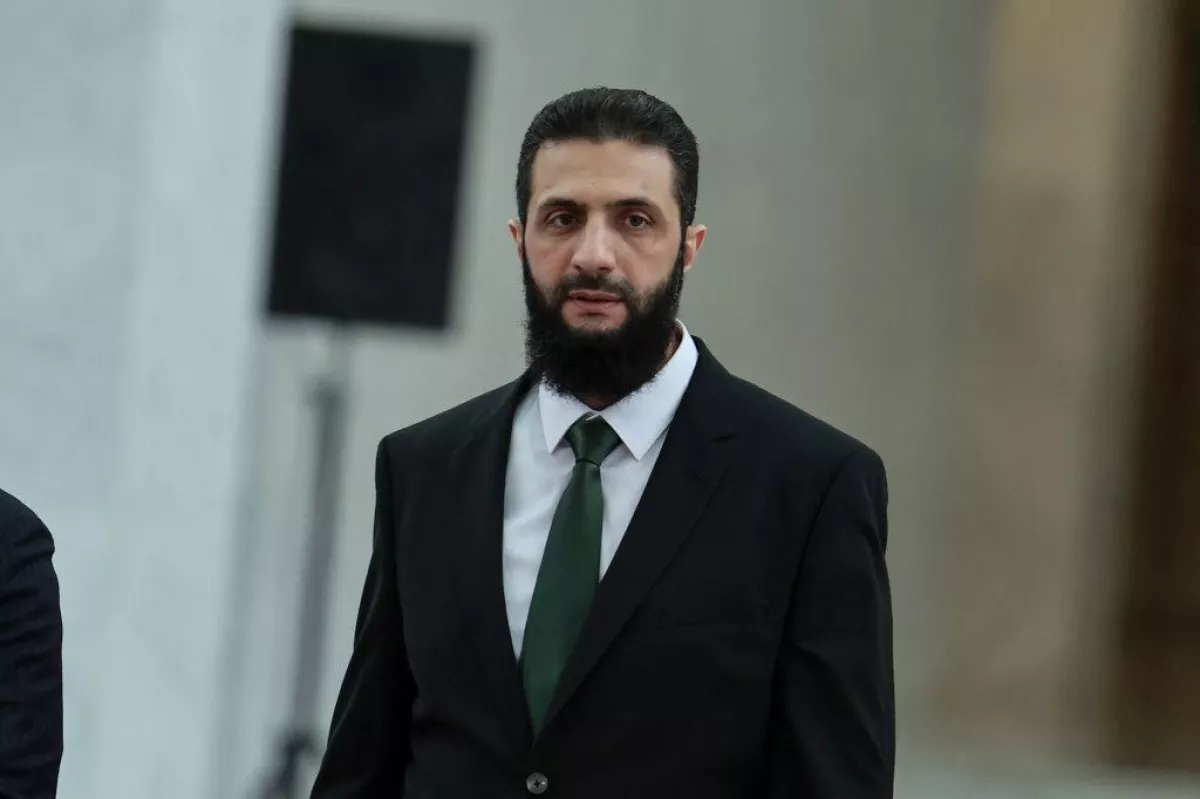Azerbaijan expands its presence in the Middle East Analysts discuss Syrian leader’s trip to Baku
The visit of Syria’s interim President Ahmed al-Sharaa to Azerbaijan marks a positive geopolitical shift in the Middle East. According to foreign media outlets, the meeting between the two leaders demonstrated their determination to build cooperation and reflected shared interests in the region.

Azerbaijani President Ilham Aliyev described the visit as the beginning of a new phase in relations between the two countries, stressing the need to overcome the stagnation in Azerbaijani-Syrian ties. In turn, Ahmed al-Sharaa noted that relations between Syria and Azerbaijan are rooted not only in political and economic foundations but also in deep historical and cultural connections.
How do analysts and experts assess the outcome of this visit? Azerbaijani and Russian political analysts shared their views on the matter with Caliber.Az.

According to Farhad Mammadov, head of the South Caucasus Research Centre and Azerbaijani political analyst, Türkiye’s key role in Syria creates a foundation for Azerbaijan to be active in the region both politically and economically.
"Moreover, according to several media reports, negotiations between Syria and Israel were held in Azerbaijan. This is a significant element for Syrian security and represents extremely complex talks. The overall situation on the ground is difficult — considering Israel’s presence in Syrian territory and the position of the new Syrian government on this issue. At the same time, it is strategically important for Tel Aviv that Syrian airspace remains open to Israeli air operations, especially in light of recent military actions against Iran," Mammadov noted.
In his view, the fact that such complex negotiations took place in Baku indicates that Azerbaijan is becoming actively involved in intra-Syrian processes.
"This undoubtedly increases Azerbaijan’s projection in the Middle East. Baku’s influence in the region is growing stronger — both politically and economically.
Just look at how much Azerbaijan has invested in Israeli gas fields over the past year. Now, Azerbaijani gas will also enter the Syrian market, and investments are planned in various sectors of the Syrian economy. It has become clear that Azerbaijan’s presence across different spheres in the Middle East will only continue to expand," Mammadov concluded.

According to Ruslan Aysin, editor-in-chief of the Poistine portal, the visit of Syria’s transitional president to Azerbaijan is of great importance in the context of the shifting regional landscape.
"In a certain sense, one could call it a historic visit, as the region is currently undergoing major trials — a period of redrawing borders and transformation," the political analyst emphasised.
He noted that the new Syrian leadership is focused on building constructive ties with key countries in the region.
"The Syrian leadership is interested in fostering good-neighbourly relations with states that either border Syria or are located in close proximity. The new Syria has already established strong strategic relations with Türkiye. Most likely, either with Ankara’s involvement or encouragement — or perhaps on its own initiative — the Syrian leadership decided to signal its intention to deepen cooperation with Azerbaijan. We can see that Ahmed al-Sharaa’s visit was accompanied by a number of key decisions, particularly the agreement on transporting Azerbaijani gas to Syria via Turkish territory. And this is extremely important, given that Syria is now rebuilding after years of war and urgently needs reliable energy sources," he said.

The political analyst emphasised that economic cooperation holds particular significance under current conditions.
“Any economic ties help strengthen intergovernmental relations, especially against the backdrop of turbulent processes unfolding both in the South Caucasus and the Middle East. It is crucial for peace to prevail in these regions, and joint economic projects can serve as a solid foundation for a stable future,” Aysin concluded.








